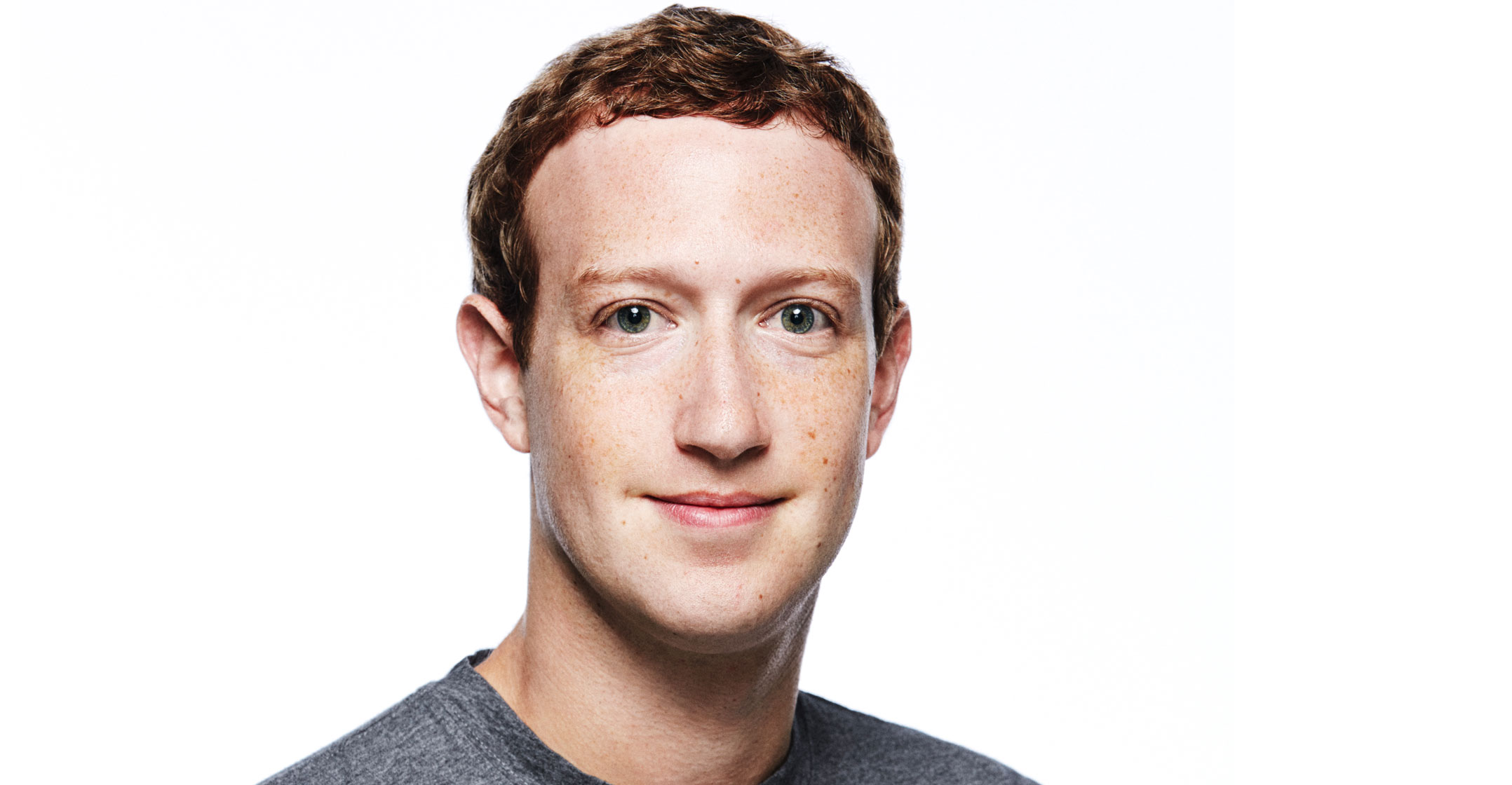 Occam’s razor is a principle that says when something happens that can be explained in multiple ways, the simplest explanation is usually the right one. The same is true of solutions: the simplest, most straightforward solution is usually the best way to solve a problem.
Occam’s razor is a principle that says when something happens that can be explained in multiple ways, the simplest explanation is usually the right one. The same is true of solutions: the simplest, most straightforward solution is usually the best way to solve a problem.
In the US, social media giant Facebook has become a problem. It makes its money — $23.3-billion in 2017 adjusted earnings — by running roughshod over privacy concerns, selling users’ data to advertisers. Along with Amazon, Apple and Google, it has “aggregated more economic value and influence than nearly any other commercial entity in history”, as the marketing professor Scott Galloway wrote in Esquire earlier this year.
It’s a monopoly, having either bought or crushed most potential competitors. It stifles innovation; as my colleague Noah Smith noted recently, potential start-ups can’t get capital if venture capitalists think they might wind up as Facebook roadkill. (Such companies are said to be in Facebook’s “kill zone”.)
And then there are the issues that have emerged since the 2016 American election: how Facebook looked the other way as Russian interests spread disinformation; how it was slow to act as its platform was used to foment murder and rape in Myanmar; how it turned over user data to Cambridge Analytica, the sleazy political data firm working on Donald Trump’s presidential campaign; and, in the most recent revelation, how it tried to discredit critics in the most odious of ways — by linking them to George Soros, the Jewish financier who has been demonised by the anti-Semitic right.
As more has emerged about Facebook’s business tactics, as well as its efforts to quash complaints, critics have come forth with lots of ideas about what to do about Facebook. Over 30 senators have co-sponsored a bill that would force Facebook to abide by the same disclosure rules for political ads as television and newspapers. The New York Times called for congressional hearings. Antitrust economists have come up with a number of intriguing ideas to rein in Facebook.
Most sense
But the idea that makes the most sense — the one with the best chance to dilute Facebook’s power, spur innovation and insert competition into the social media industry — is the solution Tim Wu proposes in his new book, The Curse of Bigness. It’s the Occam’s razor solution: break Facebook up.
Wu, of course, is the Columbia University law professor best known for coining the phrase “net neutrality”. His short book is a plea to return to the day when antitrust enforcement meant something more than focusing on whether consumer prices might rise — which, he points out, was most of the last century. It’s only been the past few decades that the “consumer welfare standard” first championed by Robert Bork became the sole prism though which antitrust regulators looked at mergers. That misguided focus has helped bring about a concentration of power not seen since the days of John D Rockefeller’s Standard Oil.
 “Back then,” Wu told me the other day, “the general counsel of Standard Oil made a speech in which he said that trying to prevent corporate concentration was like trying to prevent the rain from falling.” Monopolies were viewed as the natural course of capitalism. But President Theodore Roosevelt believed that no company should be more powerful than the federal government, and that the drive to monopolise, as Wu writes, “seemed inevitably to come with its own morality”.
“Back then,” Wu told me the other day, “the general counsel of Standard Oil made a speech in which he said that trying to prevent corporate concentration was like trying to prevent the rain from falling.” Monopolies were viewed as the natural course of capitalism. But President Theodore Roosevelt believed that no company should be more powerful than the federal government, and that the drive to monopolise, as Wu writes, “seemed inevitably to come with its own morality”.
So, in 1906, Roosevelt and his justice department brought an antitrust case against Standard Oil, won at trial, and saw the verdict upheld by the US supreme court in 1912. Standard Oil was broken up into 34 parts.
When we spoke, Wu cited three other important antitrust cases where the goal was to break up an existing company: the AT&T lawsuit that resulted in the company spinning off the “Baby Bells” in 1984, the IBM suit that began in 1969, and the Microsoft trial in 1998.
It’s true that the government failed to break up IBM or Microsoft. Even so, the mere fact of the lawsuits changed the behaviour of the companies, allowing for innovation and competition that the two monopolies had prevented. The software industry came about in no small part because IBM didn’t dare try to stop it; Google was able to grow knowing that Microsoft wouldn’t try to harm it the way it had Netscape. As for AT&T and Standard Oil, can you imagine what the American economy would be like today if they had not been broken up? All four cases were critically important in allowing capitalism to flourish.
The point is, for most of the last century, antitrust regulators were unafraid to try to break up companies if they thought one had become too big or too powerful. As Wu points out, nowhere in the law is there even a mention of consumer welfare or the fear of higher prices. On the contrary. In 1914, congress passed the Clayton Act, which toughened the 1890 antitrust Sherman Act. In so doing, Wu writes, “the nation had picked decentralisation over concentration and competition over monopoly”.
Oligopolies
Today, the consumer welfare standard has given us any number of oligopolies — airlines, anyone? — that have demonstrably harmed consumers even if they haven’t caused prices to rise. Antitrust regulators still demand divestitures before approving a merger — and sometimes oppose a merger entirely — but the idea of breaking up an existing company is no longer viewed as a realistic antitrust tool. “It’s been stigmatised,” Wu told me.
It shouldn’t be. Let’s return to Facebook. As I wrote in a column earlier this year, its chief executive, Mark Zuckerberg, understood, earlier than others, that Instagram and WhatsApp might one day represent significant competition for Facebook. So, in 2012, he bought Instagram, and two years later he added WhatsApp. Neither company has ever been integrated into Facebook; they stand as separate units with their own identities. They also have a less aggressively commercial ethos than Facebook, and seem more concerned with privacy issues. Or had, I should say: the founders of both companies are no longer there, tired of the pressure they felt from Facebook executives to act more like, well, Facebook.

With Facebook floundering, Instagram is now viewed internally as the growth driver. Many people who are tired of Facebook for one reason or another are turning to Instagram as their social media platform of choice. Many of them don’t even know that Instagram is owned by Facebook.
But the idea that your only option if you don’t want to use Facebook is to use a company owned by Facebook is crazy. Competition would force Facebook to face its problems more squarely, and it would give consumers options they don’t now have. The only way to get the “decentralisation over concentration and competition over monopoly” that the US once valued is to break up Facebook. If Instagram, WhatsApp and Facebook were competitors, you likely wouldn’t need a raft of new regulations. Competition itself would take care of most of Facebook’s current problems. It would have to: if the company didn’t fix itself, customers wouldn’t stick around.
One of Wu’s core points is that there’s nothing wrong with saying that too much industry concentration is something we should oppose — that even if consumer prices aren’t affected, there is a raft of negative consequences, both political and economic. Rarely are those negatives on such vivid display as they are right now at Facebook.
Nor is there anything wrong with calling for monopolistic companies to be broken up. Standard Oil was much more formidable than Facebook is today, but the government took it on, broke it up and made the economy healthier. Breaking up Facebook would be easy by comparison. — By Joe Nocera, (c) 2018 Bloomberg LP

